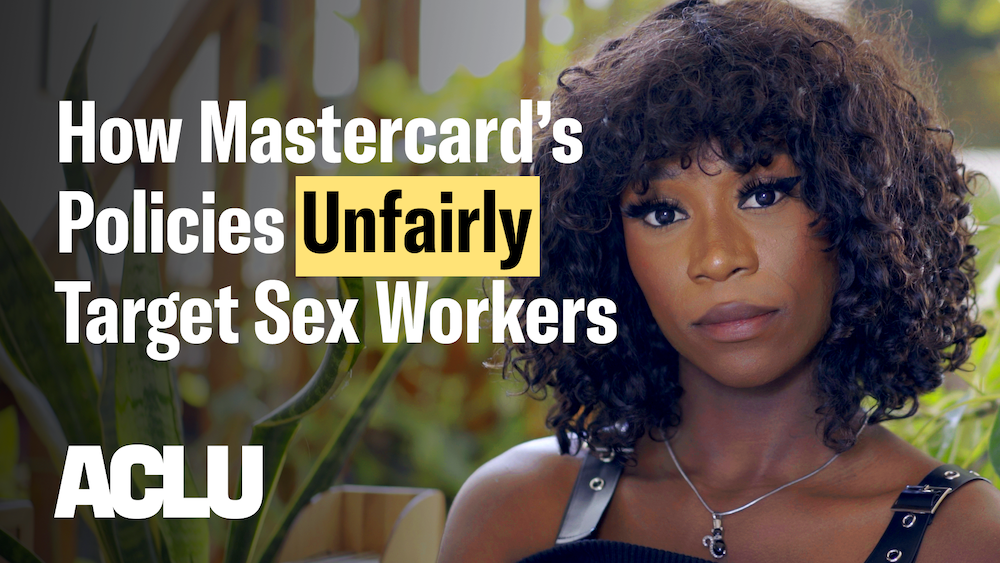How Mastercard is Endangering Sex Workers


Back in 2021, Mastercard developed a new policy for adult content websites using its credit card or payment options. The policy imposed requirements such as pre-approval of all content before publication, forbidding certain search terms, and keeping records of age and identity verification for all performers. These restrictions not only restrict free speech and harm the livelihood of sex workers, but fail to make adult content platforms safer. Over 16,000 of you in calling for an end to this policy, telling Mastercard about the harm such practices pose for Black, immigrant, and transgender sex workers especially.
Now, we’re taking the fight to the next level. In a complaint filed to the Federal Trade Commission, we led a coalition of organizations and advocates opposing Mastercard’s policy and urging the FTC to open an investigation and put an end to these discriminatory and dangerous practices.
Adult content is constitutionally protected speech under the First Amendment. As our complaint explains, Mastercard’s vague and ambiguous policy requirements, coupled with the dangerous combination of platform over-compliance and inadequate automated tools, has led to the vast censorship of this entirely lawful category of speech.
In addition to the free speech and privacy implications of Mastercard’s adult content policy, we are fighting because of the harm this policy causes to sex workers. Since its implementation, Mastercard’s payment policy has forced sex workers into arduous — and often impossible — mazes of verification and regulation, requiring multiple levels of identity verification and putting needless bureaucracy in the way of legal conduct and speech. As a result, sex workers are .
Vanniall, a sex worker in New York City who relies on platforms like OnlyFans and Pornhub, described the new policy as a “whole different ball game.” If Mastercard’s policy flags her content for noncompliance, it can result in the removal of entire accounts — even from websites whose explicit purpose is to host adult content. And the impact on her life is catastrophic. After Vanniall had her OnlyFans account flagged, she says, “I lost all of my rent for that month overnight because of a tagging system that they had just put in place.”

In an attempt to comply with the Mastercard policy, adult content websites are putting in place all sorts of burdensome and sometimes impossible barriers. Many now require adult content producers to verify their identity through biometrics systems, a service that Mastercard now offers and benefits from financially. And these biometrics services have a long record of racist implications.
“These biometrics have to be taken multiple, multiple times,” said Vanniall. “I'm talking to multiple dark-skinned people who have had this same problem.”
When sex workers are pushed off of digital platforms, they’re forced into more dangerous and more onerous means of survival. Since the 2018 passage of SESTA/FOSTA, many sex workers have been pushed offline and into street sex work, where they have to work in isolated areas to avoid arrest and deal with clients without background checks.
While working with our coalition of sex workers and impacted individuals, one thing remained clear: Every one of us is invested in keeping sex workers safe, preventing sex trafficking, and pursuing wrongdoing on the internet. It is also clear that Mastercard missed the mark when they implemented this policy, and they are actively causing harm to the lives and livelihoods of sex workers. The Mastercard policy is yet another barrier needlessly put between sex workers, their rights, and their safety. But we see a future where that can change, and hope to help Mastercard improve their policies for the sex worker community.
“There can be no conversations about us without us,” says Vanniall. “We have to be in the room … It has to come from a place of love or understanding or something other than straight-up hate.”

